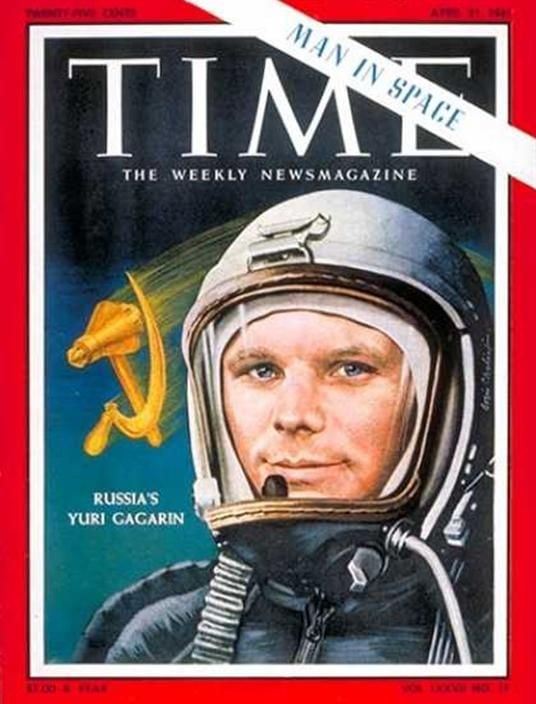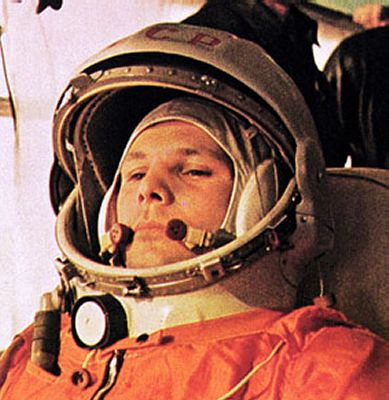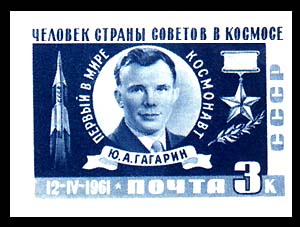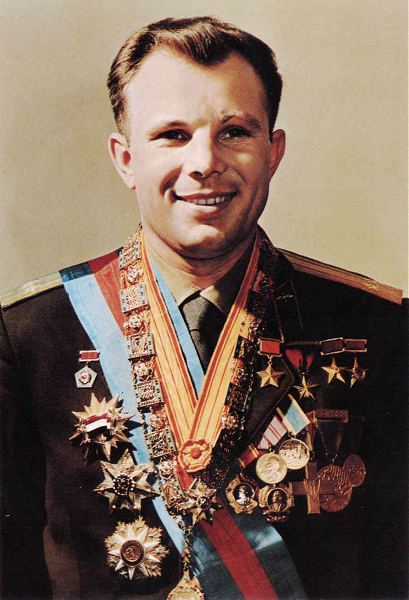 The first man in outer space 50 years ago believed fervently in the Almighty — even though the atheistic Soviet government put famous words in his mouth that he had looked around at the cosmos and did not see God.
The first man in outer space 50 years ago believed fervently in the Almighty — even though the atheistic Soviet government put famous words in his mouth that he had looked around at the cosmos and did not see God.
Mankind’s first space flight lasted 108 minutes on April 12, 1961.
It was the height of the Cold War. Cosmonaut Yuri Gagarin was proclaimed by the Soviet leadership to have announced, “I went up to space, but I didn’t encounter God.”
However, he never uttered those often-quoted words, says a close friend. And it seems that the Soviet Union lied about a number of aspects of the 1961 space flight.
For example, they covered up the fact that he landed more than 200 miles away from where they were expecting him, a new book discloses. The Soviets trumpeted his mission, the first manned flight into space, as a major Cold War propaganda coup, portraying it as a glitch-free triumph of Communist ideology, writes Russian journalist Anton Pervushin in his book, 108 Minutes That Changed the World.
Soviet Premier Nikita Khrushchev, in line with the official atheistic Soviet line, proclaimed that Gagarin had told him the famous line about not seeing God in space. But nobody else ever heard Gagarin say it –and he never repeated it.
In fact he was a baptized member of the Russian Orthodox Church. Due to Soviet repression of Christianity, he kept that to himself.
 A new book published on the eve of the 50th anniversary of Gagarin’s famous flight reveals that Soviet scientists severely miscalculated where he would land. “For many years Soviet literature claimed that Yuri Gagarin and his Vostok I landing capsule had come down in the area it was supposed to,” writes Pervushin. “They had been expecting Gagarin to land almost 250 miles further to the south So it turned out that nobody was waiting or looking for Yuri Gagarin. Therefore the first thing he had to do after landing was set off to look for people so he could tell the leadership where he was.”
A new book published on the eve of the 50th anniversary of Gagarin’s famous flight reveals that Soviet scientists severely miscalculated where he would land. “For many years Soviet literature claimed that Yuri Gagarin and his Vostok I landing capsule had come down in the area it was supposed to,” writes Pervushin. “They had been expecting Gagarin to land almost 250 miles further to the south So it turned out that nobody was waiting or looking for Yuri Gagarin. Therefore the first thing he had to do after landing was set off to look for people so he could tell the leadership where he was.”
The Soviets also lied about the manner of his landing, claiming that he had touched down inside the capsule — which landed on dry land, unlike American space capsules, which splashed down in water. In fact, Gagarin bailed out and landed by parachute.
The book reveals a touching letter Gagarin wrote to his family before the mission in which he pondered his own mortality, telling his wife not to “die of grief” if he never returned. “After all life is life and there is no guarantee for anybody that tomorrow a car might not end one’s life.”
Earlier, the Soviets had sent Laika, a dog, but had made no provision for her to return to earth — so she died in orbit.
“Gagarin also became well-known for the phrase he is said to have stated, a phrase that was used extensively by the atheist propaganda of the time,” writes Nafpaktos Hierotheos Vlachos, the head of today’s Russian Orthodox Church. “And I say ‘he is said to have stated.'”
 In fact, “Gagarin was a baptized faithful throughout all his life,” says General Valentin Petrov, Professor of the Russian Air Force Academy and a personal friend of the cosmonaut. “He always confessed God whenever he was provoked, no matter where he was.”
In fact, “Gagarin was a baptized faithful throughout all his life,” says General Valentin Petrov, Professor of the Russian Air Force Academy and a personal friend of the cosmonaut. “He always confessed God whenever he was provoked, no matter where he was.”
In a 2007 article titled “Yuri Gagarin, the Christian,” by Maria Biniari, she wrote on his birthday in 1964, he visited a monastery, the Lavra of Saint Serge, and met with the Prior — the monk in charge.
There, he had a photo taken of himself, which he told the priest “this is for those who don’t believe.” He signed it “with my best wishes, Yuri Gagarin.”
“That famous phrase which has been ascribed to him, well, in actual fact it was Khrushchev who had said it,” says Petrov. “It was heard during a meeting of the Central Committee, whose desire it was to promulgate anti-religious propaganda.
 “Khrushchev had mockingly addressed the following words: ‘Why didn’t you step on the brakes in front of God? Here is Gagarin, who flew up to space, and yet, even he didn’t see God anywhere.’
“Khrushchev had mockingly addressed the following words: ‘Why didn’t you step on the brakes in front of God? Here is Gagarin, who flew up to space, and yet, even he didn’t see God anywhere.’
“Immediately after that, those words were placed into another’s mouth, because the people would have believed more in Gagarin’s words than Khrushchev’s,” says Petrov.
In fact, Gagarin should be remembered for completely different words, says his friend:
” I always remember that Yuri Gagarin said: “An astronaut cannot be suspended in space and not have God in his mind and his heart.”

